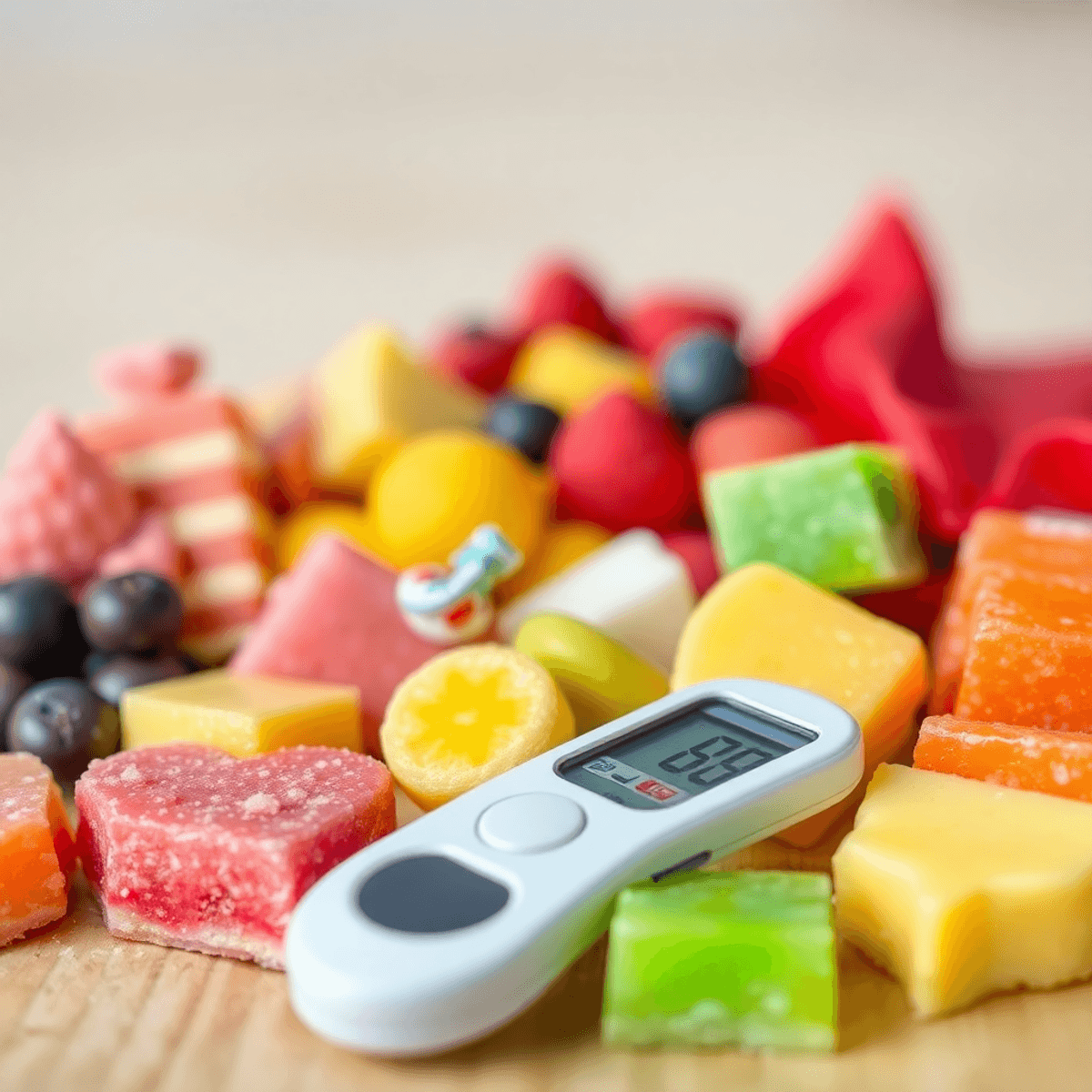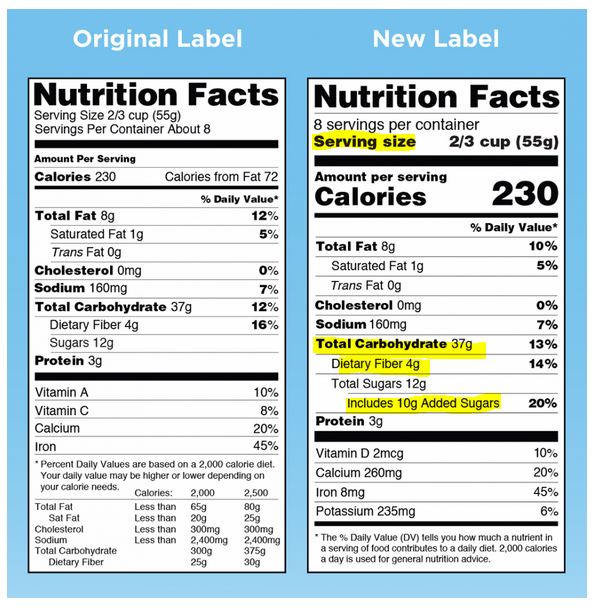Side Effects of Sugar Free Sweets: What You Need to Know Before Indulging
Sugar-free sweets are a popular alternative for people with diabetes or who are looking to reduce their sugar intake. However, it is important to be aware of the potential side effects of sugar-free sweets before consuming them. One of the most common side effects of sugar-free sweets is gastrointestinal discomfort, including bloating, gas, and diarrhea. This is due to the use of sugar alcohols, such as sorbitol or maltitol, which are commonly used as sweeteners. These sugar alcohols can have a laxative effect when consumed in large amounts and may cause digestive issues in some individuals. It is also worth noting that despite being sugar-free, these sweets still contain calories and should be consumed in moderation as part of a balanced diet.

People with diabetes should monitor their blood sugar levels closely when consuming these sweets and adjust their medication or insulin accordingly. Additionally, excessive consumption of sugar-free sweets may lead to cravings for sweet foods, potentially derailing efforts to reduce overall sugar intake. In this blog, we will explore the potential side effects of indulging in sugar free sweets.
The Sweet Spot: Navigating Sugar-Free Treats
Sugar-free sweets are confectionery products that contain little to no sugar. They are typically sweetened with artificial sweeteners such as aspartame, sucralose, and stevia. Sugar-free sweets can be found in a variety of forms, including candy, gum, chocolate, and baked goods. Sugar-free sweets, when enjoyed in moderation, can offer a permissible indulgence for both individuals managing diabetes and those looking to reduce their sugar intake.
For diabetics, these treats can provide a sense of normalcy and satisfaction without the dramatic blood sugar spikes that traditional sweets cause, aiding in better glucose control and potentially reducing the risk of hyperglycemia-related complications.
For the general population, sugar-free options can contribute to lowering overall sugar consumption, which can be beneficial for weight management, dental health, and reducing the risk of developing diet-related chronic diseases like type 2 diabetes and heart disease. However, it's crucial to remember that sugar-free sweets are not a free pass to unlimited indulgence. Moderation remains key, and careful consideration should be given to the ingredients and potential effects of artificial sweeteners. They are best viewed as occasional treats within a balanced diet, not a replacement for nutritious whole foods.
Potential side effects of sugar-free sweets
While sugar-free sweets can be a helpful option for people with diabetes, they can also have some potential side effects. These include:
- Digestive problems: Some people may experience digestive problems after consuming sugar-free sweets, such as gas, bloating, and diarrhea. This is because artificial sweeteners can be difficult for the body to digest.
- Headaches: Headaches are another common side effect of sugar-free sweets. This is because artificial sweeteners can affect blood sugar levels, which can lead to headaches.
- Nerve damage: Some studies have suggested that artificial sweeteners may be linked to nerve damage. This is a serious condition that can cause numbness, tingling, and pain in the hands and feet.
- Cancer: There is some evidence that artificial sweeteners may increase the risk of cancer. However, more research is needed to confirm this link.
Other potential side effects of sugar free
In addition to the above side effects, sugar-free sweets may also be associated with other health concerns, such as:
- Weight gain: Although sugar-free sweets are associated with weight loss, some research suggests otherwise.
- Tooth decay: Sugar-free sweets can still contribute to tooth decay, as they can contain other sugars and carbohydrates.
- Nutrient deficiencies: Sugar-free sweets are often low in nutrients, such as vitamins and minerals.
Problems with Sugar-Free vs. Sugar Sweets for Diabetics
|
Problem
|
Sugar-Free Sweets
|
Sugar Sweets
|
|
Blood Sugar Control
|
Can have minimal impact on blood sugar levels
|
Can cause significant spikes in blood sugar levels, making blood sugar management difficult
|
|
Weight Management
|
Can aid in weight loss journey due to its low caloric content
|
High sugar intake can lead to significant weight gain and make weight management more challenging
|
|
Dental Health
|
Less chance of tooth decay compared to sugary sweets
|
High sugar intake is a major contributor to tooth decay
|
|
Nutrient Deficiencies
|
Often low in nutrients
|
May provide some nutrients, but overall nutritional value is generally lower
|
|
Long-Term Health Risks
|
Potential long-term health effects are still being researched
|
High sugar intake is linked to increased risk of diabetes complications, such as heart disease, nerve damage, and kidney disease
|
Decoding the Label: What to Look for When Buying Sugar-Free Sweets
Navigating the world of sugar-free sweets requires a discerning eye when reading the label. When making a purchase, consider the following:
- Sweetener Choice: Prioritize products sweetened with FDA-approved artificial sweeteners like stevia, erythritol, or monk fruit. Be mindful of potential digestive sensitivities to sugar alcohols like maltitol or xylitol.
- Hidden Sugars and Fats: Scrutinize the ingredient list for hidden sugars (e.g., dextrose, maltose, high-fructose corn syrup) or high levels of unhealthy fats (e.g., saturated fats, trans fats). Some sugar-free products can be surprisingly calorie-dense.
- Carbohydrate Content: Check the nutritional information for carbohydrate content. Remember that even though they may be "sugar-free," they might still contain carbohydrates from other sources.
- Processing and Ingredients: Ideally, opt for products with minimal processing and a shorter, more understandable ingredient list.
- Brand Reputation and Certifications: Consider the brand's reputation and look for certifications or seals of approval that indicate quality and safety.
- Professional Guidance: Don't hesitate to consult with a healthcare professional or registered dietitian for personalized recommendations.

How to minimize the risks of side effects of sugar free sweets
If you choose to consume sugar-free sweets, there are a few things you can do to minimize the risks of side effects:
- Choose sugar-free sweets that are low in calories and fat.
- Read the labels carefully to make sure the product does not contain any other added sugars or carbohydrates.
- Monitor your diet, as excess of anything is harmful.
Conclusion
Sugar-free sweets can be a helpful option for people with diabetes or who are looking to reduce their sugar intake. However, it is important to be aware of the potential side effects of these products before consuming them. By taking some precautions, you can minimize the risks of side effects and enjoy sugar-free sweets safely. Taste the sweetness of nature. At Artinci, we believe in using only the finest natural, plant-based sweeteners. Enjoy guilt-free indulgence with our thoughtfully crafted products. Shop now and experience the difference!
Disclaimer: This blog post is for informational purposes only and should not be considered medical advice. Please consult with your doctor or a registered dietitian if you have any questions or concerns about sugar-free sweets.
FAQs
1. Are sugar-free sweets really "free" of sugar?
No, sugar-free sweets are not necessarily "free" of all sugars. They are typically free of sucrose (table sugar) but may contain other types of sugars or carbohydrates, such as sugar alcohols or carbohydrates from other sources. It's important to read the nutrition label carefully to understand the total carbohydrate content.
2. Are sugar-free sweets better for diabetics than regular sweets?
Sugar-free sweets can be a better option for diabetics as they generally cause less of a spike in blood sugar levels compared to regular sweets. However, it's crucial to consult with a healthcare professional or registered dietitian for personalized dietary advice.
3. Can sugar-free sweets help with weight loss?
Sugar-free sweets can potentially aid in weight loss by reducing overall sugar intake. However, they are often high in calories and fat, so moderation is key. They should not be considered a primary weight loss strategy.
4. Are artificial sweeteners in sugar-free sweets safe?
Artificial sweeteners are generally considered safe by regulatory bodies like the FDA. However, some individuals may experience sensitivities or side effects. It's important to be aware of potential sensitivities and choose products wisely.
5. Can I eat as many sugar-free sweets as I want?
No, moderation is crucial even with sugar-free sweets. Excessive consumption can lead to potential side effects from artificial sweeteners and may contribute to weight gain due to the calorie and fat content in some products. They should be enjoyed as occasional treats within a balanced diet.

